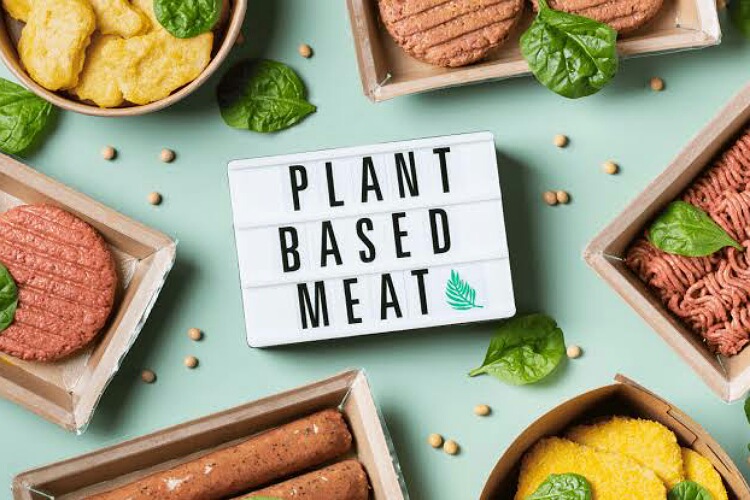The demand for plant-based meats is rising. The sales values in Europe amounted to €1.4 billion in 2020.
It has witnessed a remarkable growth rate of 68% in last two years. Stephanie Jaczniakowska-McGirr, International Head of Food and Retail at ProVeg states:
“There really is no better time than now for meat producers to consider entering the plant-based meat sector,”
“The opportunities are immense and we hope that our free report that we have launched this week makes that abundantly clear,”
What are plant-based meats?
Plant-based meats are products obtained from plant but they mimic closely the animal meat products. These are made from soybeans, legumes such as peas, wheat gluten, yeast, jackfruit, lentils, beans, potato starch, nuts, seeds, vegetables, mushrooms, etc. Thus they are fake meats or vegan meats. Taste wise the meat alternatives are almost similar to the meat. In some, you cannot make out the difference.

These are now used to make dishes that originally contained meat such as burgers, hot dogs, sausage, pepperoni, bacon, ham, ribs, wings, chicken nuggets, cold cuts, tuna, shrimp, salmon, turkey, tacos, and also roasts.
Amongst these, burger patties tops the list of demands in the vegan meat category. Plant meats are vegetarian but not necessarily vegan since some do contain milk and eggs.
Some products contain wheat gluten and may not be good for people with gluten intolerance or celiac disease.
Meat alternatives vs real meat
With meats obtained from plants, no animals get killed. The former type of meat has lower levels of saturated fats and calories. Thus it is healthier from cardiac point of view.
But they contain lesser proteins compared to the real meat. Also, their carbohydrate content is relatively higher. Plant meats lack in vitamin B12 that is vital in energy production process.
Therefore, some manufacturers fortify their plant meats with vitamin B12. Besides Vitamin B12, levels of iron and zinc are also lower in meat alternatives.
Also, do read Why fermented foods should be a regular in your daily food regime?

Plant products especially those that have added sauces and seasonings are high in sodium content. A study conducted in 2019 in Australia showed that 96% of the tested plant meats had high sodium levels.
But high salt is also a part of animal meats. Also, one should not forget that plant meats are also ultra processed products and may have added salt, sugar, and oils in them.
Health benefits of meat alternatives
We all know that plant-based diets are good for the poor animals as well as the environment. Additionally, these foods are also healthier due to their low levels of saturated fats and calories.
Hence, doctors and health experts are advocating these type of diets devoid of any animal products. And now, protein alternatives are flooding the market. The benefits on health of these alternative meat products are ample.
Fake meat holds promise in reducing the risk of cardiovascular diseases. It has an impact in minimizing inflammation. Plant meats lower the chances of cancer.
The healthy bacteria in the gut increases and this aids digestion and reduces the likelihood of digestive issues such as cramps, pain, bloating and the like. It improves bowel movements and regularizes it.

Since plant based foods and meat alternatives are lower in calories and fats, weight management is easier. It aids weight loss. The blood cholesterol level is kept under control with protein alternatives.
It helps reduce high blood pressure and is thus good for people with hypertension. The meat alternatives also assist in keeping blood sugar under control.